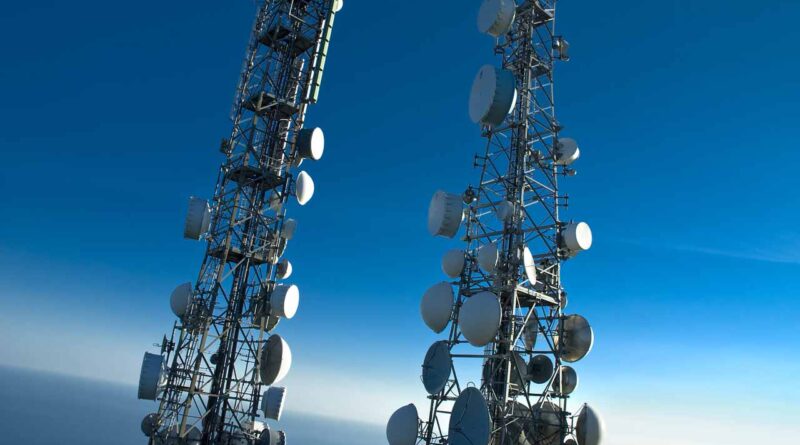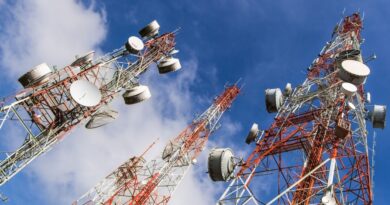NCC Approves 50% Increase in Call and SMS Tariffs
The Nigerian Communications Commission (NCC) has approved a 50 percent increase in call tariffs, raising the average cost of calls from N11 to N16.5 per minute. This decision, announced on Monday, has significant implications for the telecommunications industry and subscribers nationwide.
Based on the 2023 national telephone traffic data, the hike could result in telecom operators generating over N6.74tn in revenue by 2025, assuming call volumes remain stable. However, this projection excludes the effects of promotions offering free or discounted calls, which could alter actual revenue outcomes.
An analysis of the NCC’s 2023 Subscriber/Network Performance Report revealed that total outgoing and incoming telephone traffic in 2023 amounted to approximately 408.5 billion minutes. Outgoing traffic stood at 205.3 billion minutes, while incoming traffic was slightly lower at 203.2 billion minutes. MTN led the market, with outgoing traffic of 122.7 billion minutes and incoming traffic of 123.8 billion minutes.
With the new rate, MTN is projected to generate over N4tn in combined revenue from outgoing and incoming calls, cementing its position as the dominant telecom operator with more than 60 percent of the market’s total revenue. Airtel follows with an expected revenue of approximately N1.78tn, while Glo is estimated to generate N536.2bn. Smaller operators like Smile and Ntel are projected to earn N5.7bn and N13.1bn, respectively, reflecting their limited market penetration.
Outgoing calls alone are anticipated to contribute N3.28tn, while incoming calls are expected to bring in N3.23tn. Despite the rising popularity of data services and messaging platforms like WhatsApp and Telegram, voice calls remain a major revenue source for telecom operators.
In addition to call tariffs, SMS costs are set to rise from N4 to N6 per message. Based on 2023 SMS traffic data, the telecom industry could earn N137.84bn from SMS in 2025. MTN, which accounted for the largest share of SMS traffic in 2023, is projected to generate N100.72bn, representing 73 percent of the total SMS revenue. Airtel and Glo are expected to earn N26.26bn and N8.10bn, respectively, while smaller players like Smile and EMTS will see modest revenues.
The NCC justified the tariff adjustment by citing rising operational costs and inflation, which have significantly impacted the telecommunications industry. According to the NCC’s Director of Public Affairs, Reuben Muoka, the decision aligns with Section 108 of the Nigerian Communications Act, 2003. The increase, capped at 50 percent, is lower than the over 100 percent requested by some operators.
Related: MTN Warns of Shutdown Without Tariff Hike Amid Losses
The commission stated that the adjustment adheres to the tariff bands outlined in the 2013 Cost Study and the newly issued Guidance on Tariff Simplification, 2024. It emphasised that the increase would enable operators to invest in infrastructure, improve network quality, and enhance service delivery.
However, consumer groups and telecom subscribers have expressed concerns about the hike. The National Association of Telecoms Subscribers has rejected the new tariffs, warning of increased financial strain on Nigerians. The association’s president, Adeolu Ogunbanjo, vowed to take legal action if the new tariffs are implemented without addressing subscribers’ concerns. Ogunbanjo suggested alternative funding mechanisms, such as public share offerings, to reduce the financial burden on consumers.
The Association of Telephone, Cable TV, and Internet Subscribers of Nigeria has also demanded tangible improvements in service quality. Its president, Sina Bilesanmi, warned that failure to meet these expectations would lead to legal action against telecom operators, the NCC, and the federal government.
Minister of Communications, Innovation, and Digital Economy, Bosun Tijani, noted that the government only approved an increase of 50 percent, despite operators pushing for a hike of over 100 percent. Tijani emphasised the importance of balancing industry sustainability with consumer affordability.
As the implementation date approaches in February, consumer groups remain vigilant, insisting on accountability and service quality improvements. The tariff hike underscores the ongoing challenges of balancing industry needs with consumer interests in Nigeria’s telecommunications sector.
Content Credit| Oyedepo Oluwafifedoyinsola Precious
Picture Credit | https://businesspost.ng/




